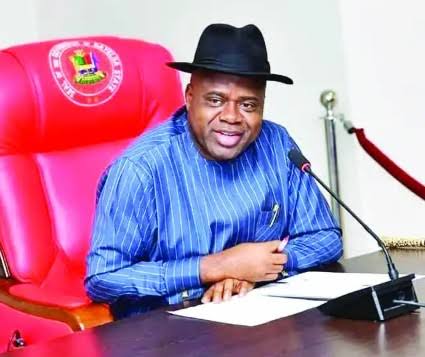Bayelsa State Governor Douye Diri, has described as commendable the resolution of the Senate on the Atala Marginal Oilfield owned by the state government.
According to Governor Diri, the Senate’s decision met the expectation of the state government and the Bayelsa people, restating the position of the government that the oilfield is a prized asset of the state and that the people are sentimentally attached to it.
The Senate Committee on Ethics, Privileges and Public Petitions had on Thursday, after investigating the controversial revocation and sale of the Oil Mining Licence 46 (OML 46) to a private firm, resolved that the oilfield be returned to its original owners.
The committee stated that the Nigeria Upstream Petroleum Resources Commission (NUPRC), formerly Department of Petroleum Resources (DPR), failed to show proof that the president directed the sale of the oilfield to a private firm. It also chided the NUPRC for disobeying a presidential directive that the original owners of the oilfield be given the right of first refusal in the award of OML 46 in accordance with best practice.
The governor, who in a statement, maintained that the April 2020 revocation and the eventual sale of the asset were controversially done said that it shocked people of the state, insisting that he presented the state’s position during his meeting with President Muhammadu Buhari in Abuja last Wednesday and that the president assured him that the issue will be urgently treated.
The governor also urged the Bayelsa people to remain patient while awaiting the decision of the president on the matter.
Also speaking on the development, a member of the Federal House of Representatives representing Yenagoa federal constituency, Hon Steve Azaiki commended the state governor for speaking the minds of the Ijaw Nation.
Azaiki pointed out that despite the difficulties of President Muhammadu Buhari to understand the difficulties faced by the people of the interior because of peculiar terrain, “imagine in 2022 going to Brass, Aggey , Koluama etc is still like an adventure to the unknown, still as it was in the days of the Willink Commission of 1957 and the report of 1958.



